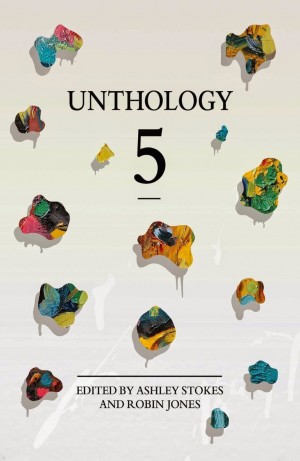You have no items in your cart. Want to get some nice things?
Go shopping You used to know where the world began and where it ended. You could work for a better life believing that things would improve, or struggle for an ideological realignment that only needed more spirit, better articulation, to be realised. You might fail, of course, or your ideas on capitalism or socialism wouldn’t spread in the expected manner. Still, you could take comfort in a certain clarity: you hated Kinnock or Thatcher; Carter or Reagan. Gorbachev was a sell-out or a pragmatist. The end of the Soviet Union was the greatest geopolitical catastrophe of the 20th century or a miraculous liberation for millions. Some, by this point, were confidently proclaiming the end of history: we’re all capitalists now. But history didn’t end: we’ve had 9/11, 7/7, Iraq’s descent into chaos, dizzying financial immorality, entire countries at the brink. These days, you can’t be too certain of anything: aren’t fanatics the only ones to hold strong beliefs? Aren’t you a little unfair, or deluded, perhaps evil, to do what you do, feel what you feel, think what you think?
You used to know where the world began and where it ended. You could work for a better life believing that things would improve, or struggle for an ideological realignment that only needed more spirit, better articulation, to be realised. You might fail, of course, or your ideas on capitalism or socialism wouldn’t spread in the expected manner. Still, you could take comfort in a certain clarity: you hated Kinnock or Thatcher; Carter or Reagan. Gorbachev was a sell-out or a pragmatist. The end of the Soviet Union was the greatest geopolitical catastrophe of the 20th century or a miraculous liberation for millions. Some, by this point, were confidently proclaiming the end of history: we’re all capitalists now. But history didn’t end: we’ve had 9/11, 7/7, Iraq’s descent into chaos, dizzying financial immorality, entire countries at the brink. These days, you can’t be too certain of anything: aren’t fanatics the only ones to hold strong beliefs? Aren’t you a little unfair, or deluded, perhaps evil, to do what you do, feel what you feel, think what you think?
In Unthology 5, Unthank Books’ new short story collection edited by Ashley Stokes and Robin Jones, this modern spirit of doubt and negation is ever-present. Each of the fourteen stories, by new and established authors, turns on a moment of uncertainty, unease, or loss of control. The first story is entitled “A Little More Prayer” (“that’s all we need”, one of its lead characters complains, “a little more prayers”) and the last story “The End of the World”. We’re not in Kansas anymore.
Most of the stories have a sombre tone. In “79 Green Gables”, by John D. Rutter, a young man meets his girlfriend’s parents and brother, smiling and talking even as he fails to connect with his love. They have just come back from a trip in Normandy and the West of France, where some unspoken romantic failure has occurred. Now, chatting to his would-be in-laws, the young man feels his sudden banishment:
We didn’t make eye contact during dinner except once when I caught her glance as I poured a large glass of port and topped up Digger’s, breaching the anti-clockwise rule. She rolled her eyes at me, so I turned to the antique dresser and the two orange-brown Kutani vases I’d always liked… They’d have ended up with us eventually when the oldies (as she called them) died. That wasn’t going to happen now.
By the next day, his girlfriend has had time to update her mother, who now eyes the young man sadly. The fact that the girl barely speaks in the story means we’re not clear about what’s gone wrong, or what she’s feeling. Without that knowledge it’s hard to see what could possibly be done, if anything, to patch things up. Rutter gives us a skilled, melancholy view of a troubled relationship.
“Red”, by Roelof Bakker, is a different kettle of fish. Just over three pages long, it follows a woman in meltdown. On her way to work one morning, she passes a consumer goods store and is struck by the advertising slogan in its window promising various technological wonders. Suddenly, the woman realises the full insult of the situation: this stuff won’t be wonderful for very long; it will wear down and become banal. She sees red and returns moments later with a hastily acquired baseball bat to set about the store:
The kettle will never boil.
The toaster will never toast.
The juicer will refuse to juice.
Not a drop of liquid from the liquidizer.
The hoover won’t do any hovering.
The cooker’s crooked.
No froth from the cappuccino maker.
The laptop’s topped.
The underlying tone is serious, but the staccato sentences range over astonishment, anger and a kind of thrill in the woman’s behaviour. Her actions are self-defeating, irrational, crazy. And actually, for the moment, all she wants is to be this irrational, this crazy. She is not the answer to any question: she simply acts, here and now, impulsively.
Mark Mayes’ “The Regular” features a man drinking in a pub who is suddenly confronted by “a neatly bearded man, tall, in his fifties, grey felt hat in the Russian style, dark checked coat.” This character is in turn insolent, ridiculous and insinuating, more than a little reminiscent of the devil in Ivan Karamazov’s nightmare in The Brothers Karamazov. In “The Regular”, the stranger visits to remind the drinker of his past – a German liaison and an unwanted son. It’s a deeply wounded world, with shady characters and dingy pubs, and one in which the idea of family happiness is the ultimate grotesquery.
Even in the stories where a character tries an unambiguously positive thing – such as when an elderly Polish man gives a Muslim boy a bicycle in Garrie Fletcher’s “Kowalski” – trouble is not far behind. The old man’s benevolence is misunderstood, perhaps wilfully, and he now “despite the heat…felt a chill, something he hadn’t felt since [wartime] Europe.” Were the story extended an additional page, it is difficult to imagine “Kowalski” ending in a display of liberté, égalité and fraternité. This is England, this is now.
One aspect of the collection disappoints, despite its authors’ skill and craftsmanship. Writing about unhappiness, or about the truth slipping away, does not necessarily have to be stylistically downbeat – it is possible to show off the sheer inventiveness and joy of language while emphasising the shakiness of the truths one tells. This is lacking in Unthology 5: writing which unashamedly shows off, which is intoxicated by words, words, words; which enjoys the misery, so to speak.
But the final conclusion has to be this: Unthology 5 says something true about today’s world, says it with interest and skill, and you should read it, soon.

About Andre van Loon
Andre van Loon is a freelance literary critic, specialising in new British and American novels and studies of Russian nineteenth century literature. He holds an MA in English Literature & Russian Studies from the University of Edinburgh and lives in London.




